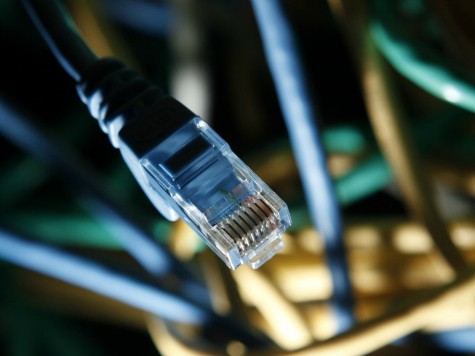President Obama’s idea of “Net Neutrality” to ensure unfettered access to the Internet for all Americans is great in theory, but could be very problematic in practice. Proponents say that greedy telecoms and cable companies have monopoly power. Opponents complain that the U.S. government is the world’s largest monopoly and spent as much as Facebook’s spent in its first six years of operation to build a health care website that still doesn’t work.
The administration’s proposal would treat the Internet as a public resource. Their idea of Net Neutrality focuses on enforcing four basic rules to supposedly prevent the same Hollywood moguls and Wall Street kingpins that funded Obama’s 2008 and 2012 presidential campaigns from turning Internet access into their own private toll booths.
In his November 10 statement, President Obama declared, “An open Internet is essential to the American economy, and increasingly to our very way of life.” Despite the claims of Al Gore, it is indisputable that the Internet was created by the U.S. federal government as a highly redundant communications system that could self-heal quickly after a nuclear attack. But most of the “essential” usability that has aided the economy was created by entrepreneurial capitalists to expand Internet functionality.
With the Federal Communications Commission (FCC) focused on finalizing new rules it says will encourage competition and user choice on the Internet, President Obama outlined the four rules for Net Neutrality that he encouraged the FCC to adopt:
- No blocking. If a consumer requests access to a legal website or service, their Internet Service Provider (ISP) must not be permitted to block access in favor of another competitor that paid fees to the ISP;
- No throttling. ISPs cannot intentionally slow down some content or speed up others–a practice known as “throttling”–to make one competitor more favored than another;
- Increased transparency. The new rules apply to the “last mile” connection between users and their ISPs, and to points of interconnection between the ISP and the rest of the Internet that can speed up or slow down access; and
- No paid prioritization. ISPs cannot engage in gatekeeping by sticking a service in an Internet “slow lane” simply because the service does not pay a fee.
The President’s statement claims his “basic rules” will not create an undue burden on ISPs or others. But he does allow for network management exceptions for “mission-critical services”, including local government emergency and disaster recovery services.
The President avoided the real issue: that Internet bandwidth will always be a finite resource and will need some mechanism to allocate availability and priority. The real question is, should politicians who are notorious for engaging in crony capitalism be given this power, or should the private sector whose innovation created the Internet demand be trusted to provide more of what consumers want at a lower price.
The public sector thrives on control and the status quo. The private sector thrives on the “creative destruction” that overwhelms archaic business practices and raises the general standard of living. Hopefully, the new FCC rules on Net Neutrality will prevent monopoly and stifling growth of Internet innovation.
Chriss Street suggest that if you are interested in California business and government, please click on “California’s High-Speed Rail on Track to Open in 80 Years“

COMMENTS
Please let us know if you're having issues with commenting.